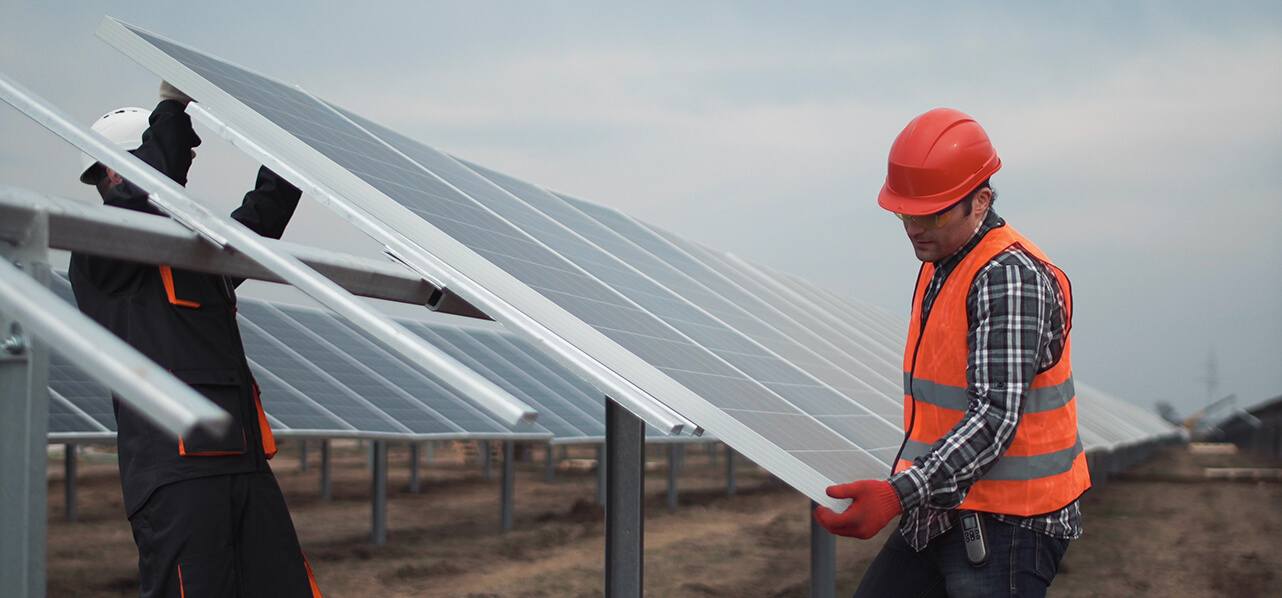Partner Düsseldorf
"The current special regulations do not adequately incentivise this need, leading to inefficient grid utilisation. This results in different utilisation levels within the system, which in turn impacts electricity prices."
In 2024, the special grid fees regime outlined in Sec. 19 para. 2 of the German Electricity Grid Fees Ordinance (Stromnetzentgeltverordnung – “StromNEV”) will result in grid fee reductions totalling €1bn+ for around 400 band load customers and 4,200 atypical grid users. Sec. 19 para. 2 sentence 1 StromNEV privileges industry and commerce for so-called atypical grid usage, rewarding companies that shift their individual maximum load to low rather than peak grid-load times allowing better long-term grid utilisation. In contrast, Sec. 19 para. 2 senetence 2 StromNEV helps electricity-intensive businesses that constantly use a lot of electricity on both a daily and an annual basis (i.e. band load consumption), rewarding companies that consume electricity from the grid during at least 7,000 hours per calendar year and with a total consumption exceeding ten gigawatt hours per year.
These regulations date back to a time when conventional power plants – such as coal and nuclear – generated most of Germany’s electricity supply on a constant power generation basis. Such power plants operate most efficiently at a constant load, meaning electricity-intensive companies stabilised the grid and kept operating costs low through their consumption behaviour.
With the expansion of renewable energy, this has fundamentally changed. Renewable energy such as wind and solar power are dependent on the weather, meaning electricity generation is highly volatile. The current system of grid fees does not offer companies sufficient incentives for flexible electricity consumption. Yet the ability to adapt electricity consumption to fluctuations in renewable energy feed-in is becoming ever more important. The current special regulations do not adequately incentivise this need, leading to inefficient grid utilisation. This results in different utilisation levels within the system, which in turn impacts electricity prices.
The BNetzA’s proposed solutions
BNetzA states in its list of key issues that costs must be reduced and system-wide efficiency improved by ensuring that electricity consumption becomes more flexible. The individual grid fees outlined in Section 19 para. 2 StromNEV, which entail significant grid fee reductions for industrial companies, should therefore be abolished in their current form and replaced by a so-called ‘system-serving special grid fee’ based on a determination in accordance Section 21 para. 3 sentence 4 no. 3 EnWG.
In BNetzA’s view, the current band load criteria often prevent increasing the flexibility of energy-intensive consumers, hindering their participation in an increasingly volatile energy market. A cancellation of the band load privilege should therefore enable industry to react more flexibly to market changes. It would be better going forward to privilege companies that significantly increase their consumption compared to their individual annual average during periods of particularly low prices and significantly reduce it during periods of particularly high prices. This would not only support the use of renewable energy, but also improve market stability and reduce overall grid costs. Further, these flexibility incentives should be designed for long term periods and not – as currently – for a limited time only. This both give companies more planning security and incentivise them to invest in technology promoting flexible electricity consumption.
"BNetzA foresees granting transition periods for end consumers to allow them to switch their production and increase flexibility."
In addition, regional differences in relation to privileging atypical electricity consumption should be considered to prevent any negative impact on grid stability, for example in regions with low decentralised renewable energy feed-in.
BNetzA foresees granting transition periods for end consumers to allow them to switch their production and increase flexibility.
Conclusion and outlook
Reforming the special grid fee regime is a necessary step in driving forward the energy transition and ensuring grid stability. Flexible power consumption will play a central role in the future to better integrate fluctuating renewable energy feed-in and reduce costs in the electricity system. However, it remains a challenge to structure the new regulations in such a way that they do not jeopardise German industry’s competitiveness. At present, the anticipated flexible energy consumption is not achievable, as production processes do not allow simply switching off electricity consumption due to less renewable energy feed-in into the grid.
One possible solution for industry could be investing in new technology allowing for more flexible electricity consumption. Where this is not possible alternative solutions must be considered, such as investing in (large-scale) battery electricity storage systems (“BESS”). BESS could be used to store electricity in low price times for later consumption in high price times with less renewable energy feed-in into the grid. This would stabilise the grid and optimise fees for heavy industry users under the envisaged new regime. However, enabling a significant expansion of BESS requires a resilient regulatory framework which heavy industry can trust.
WFW have unrivalled expertise advising on all energy-related regulatory matters and large scale energy transition projects. If you would like us to help you through such a process, please reach out to this article’s author or, if you are already a client, to your regular WFW contact.
Click here to view the full article series.




